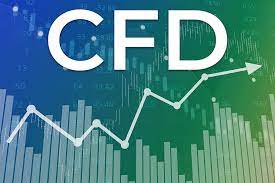As a trader, choosing the right broker is essential for maximizing returns and minimizing risks. While there are multiple types of brokers out there, CFD brokers have been increasingly popular among traders. cfd broker allow traders to take advantage of market volatility with the ability to trade on margin. In this comprehensive guide, we will explore the role of CFD brokers, how they operate, and what traders should consider when selecting a CFD broker.
What are CFD brokers?
CFD (Contracts for Differences) brokers are financial service providers that allow clients to trade a range of financial instruments such as forex, indices, commodities, shares, cryptocurrencies, and more. CFD brokers facilitate speculative trading, where traders can profit from price movements without owning the underlying assets. By offering leverage, CFD brokers allow traders to take larger positions in the market, which can magnify profits and losses. CFD brokers are different from traditional brokers in that they typically do not charge commissions. Instead, CFD brokers profit from the difference between the bid and ask prices, known as the spread.
How CFD brokers operate:
CFD brokers allow traders to enter into contracts with the broker to buy or sell a specific financial instrument at a later date. When a trader enters into a CFD trade, the broker will either charge or credit the trader based on the price difference between when the trade was opened and closed. CFD trading is typically done on margin, which means that traders only need to put up a small percentage of the total value of the trade. This allows traders to take larger positions than they would be able to with their capital alone. However, it also means that traders could potentially lose more than their initial investment if the trade goes against them.
Choosing a CFD broker:
Choosing the right CFD broker is essential for trading success, as well as minimizing risks. It’s important to select a broker that is reputable, reliable, and fits your trading needs and goals. When looking for a CFD broker, here are some factors to consider:
Trading platform: the trading platform is where you will make trades, so it’s important to select a broker that offers a platform that is user-friendly, stable, and has the features you need to trade effectively.
Asset offerings: consider the range of financial instruments offered by the broker. Choose a broker that has a selection of assets that align with your trading strategy.
Customer support: good customer support is crucial when trading, as you’ll want to be able to get help quickly if any issues arise.
CFD trading strategies:
CFD trading can be an effective way to profit from market volatility. Here are some popular CFD trading strategies:
Day trading: traders hold positions for a short amount of time, usually a few hours or less, with the goal of profiting from small price movements.
Swing trading: traders hold positions for several days to a few weeks, with the intention of capturing larger price trends.
Position trading: traders hold positions for weeks or months, with the goal of capturing long-term trends.
Conclusion:
It’s also important to have a solid trading strategy in place to minimize risks and maximize profits. By understanding the role of CFD brokers and how they operate, traders can make informed decisions when selecting a broker and be equipped to trade successfully in the CFD market.


